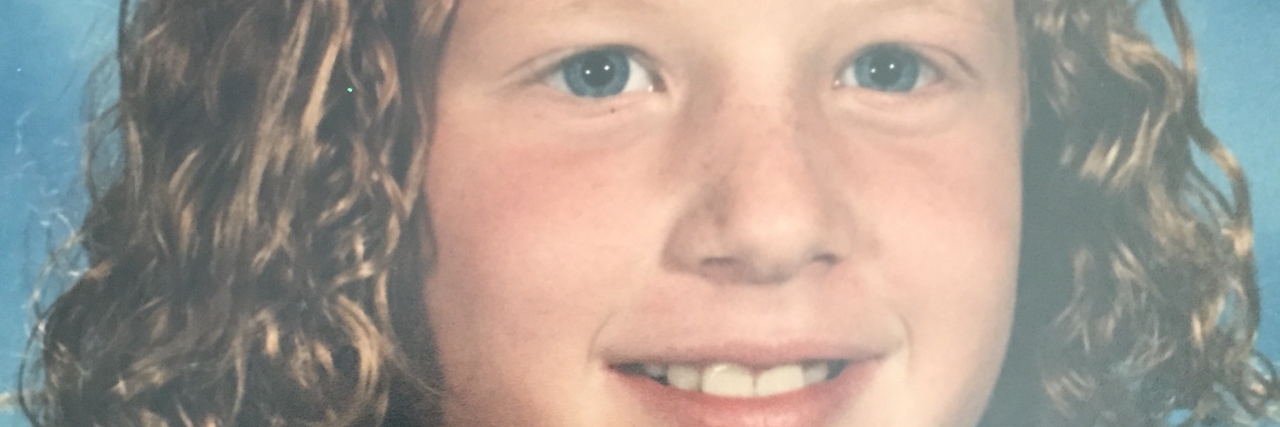I Was a 4th-Grader With Mental Health Problems
As a fourth grader, I struggled with hair and wardrobe choices. I had struggles with friends, and math made me want to pull out my permed hair.
 I also began my lifelong struggle with mental illness.
I also began my lifelong struggle with mental illness.
All weekend I hadn’t been feeling well. I had an upset stomach and by Sunday a persistent pain in my side. That afternoon my mom decided it was time to go to the ER. I was anxious and scared. On the ride there I asked her for reassurance that the only reason we were going to the ER was because it was Sunday and the doctor’s office was closed. I wanted to believe I really was OK, but understood at a subconscious level something was very wrong.
We walked in and right away the nurses noted I had the “appendicitis walk.” After some tests it was determined my appendix had burst and I was rushed into emergency surgery. Due to complications I didn’t go home until Friday afternoon.
It took some time, but my body did heal. Unfortunately my mind took more time. Soon after getting home from the hospital I began having trouble sleeping. I could not fall asleep in my own bed. The more I tried to sleep, the more anxious I got. Nightly, I would go out to the couch and cry until I had exhausted myself enough to sleep.
My parents were helpful and supportive, always willing to listen and pray with me, but soon this was the new norm.
And it wasn’t just the sleeping. I also began to feel extreme and irrational guilt about everything. Things I did years before, things I might have done or thought, things I thought about doing, things I might have thought about doing… I was one big bundle of guilt, and this was expressed by uncontrollable crying. I would tearfully “confess” to my mom, and sometimes that would help. Other times my brain would get stuck, and I would continue to feel guilty and remorseful until the next thing for me to dwell on came along.
That wasn’t the worst of it. I began having intrusive thoughts. Awful images would pop into my head, and I could not control them. They persisted no matter what I did. It’s like telling someone not to think about a purple elephant and that’s exactly what they immediately think about. The more I tried not to think about these images, the more they intensified. Of course I felt guilty,
which lead to more tears. Plus I was terrified because I couldn’t control my thoughts.
Thankfully, despite my embarrassment and shame, I opened up to my parents. They took me to see a psychiatrist. I began counseling and was put on an antidepressant. Looking back I do think I probably had a mild form of post-traumatic stress disorder (PTSD) from the surgery and hospital stay as well.
Slowly I began to improve. I began to stay in my own bed and actually sleep. The guilt receded. The intrusive images were more difficult to treat. They did disappear for a while only to reappear in sixth grade and again in college, when I was diagnosed with obsessive-compulsive disorder (OCD) and anxiety.
Sometimes I think back to that time in my life, and my heart aches for that little girl. So much guilt. So many tears. I wonder why I had to go through something like that and why mental illness has persisted into my adulthood. Then I look at my life and realize those hard times helped shape me into the person I am today. I currently work as a therapist for children and adolescents with mental and behavioral health needs. My experiences as a child directly influenced my profession. And I find I have a greater empathy both for my clients and their parents. I have a passion for getting help for children and their parents, not just because it’s my job, but because I have been on the receiving end of that help and know how important it is, how it changed my life.
If you or someone you know needs help, visit our suicide prevention resources page.
If you need support right now, call the Suicide Prevention Lifeline at 1-800-273-8255.

